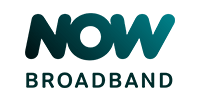What is LLU broadband or local loop unbundling?
 Phil Wilkinson-Jones | October 24th, 2022
Phil Wilkinson-Jones | October 24th, 2022

In the process of researching your next broadband deal, you may have come across the term LLU or 'Local Loop Unbundling'. And you may have wondered what on earth it means. Fear not, we're here to help.
What is Local Loop Unbundling?
Local Loop Unbundling (LLU) is the process that allows companies other than BT to provide broadband services using BT's network infrastructure. There's quite a bit to unpack there, so let us break it down for you.
BT is the incumbent broadband provider for pretty much the whole of the UK (the exception is Hull, which has KCOM as its incumbent provider for reasons we won't go into now). This means BT owns and is responsible for maintaining the UK's national broadband network. It does this through a subsidiary, Openreach.
Local Loop is the name given to the cables, the physical part of the broadband network that runs between your home and your local telephone exchange. You may have also heard this referred to as the 'last mile' of a broadband connection. Local Loop Unbundling allows other Internet Service Providers (ISPs) to install their software at the telephone exchange and provide a broadband service over the existing network cables.
Since Ofcom told BT to open up its telephone exchanges to other ISPs in 2001, hundreds of thousands of local loops have been unbundled from BT. This has allowed providers such as Sky, TalkTalk, Plusnet and others to offer broadband deals and compete directly with BT without having the enormous expense of building their own networks.
The benefits of LLU
There are two major benefits that come from compelling a country's incumbent broadband provider to share its network. The first is competition. The UK has a very competitive broadband market and the vast majority of those companies driving down prices and setting new standards for customer service have only been able to do so because they have had access to BT's national broadband network.
The second primary benefit of LLU is that, because BT has large and influential wholesale customers in the form of Sky, TalkTalk etc, it has no choice but to invest heavily in its network, developing new technologies to reach the most remote parts of the UK and maintaining the national network over which about 80% of us get our broadband.
In recent years, BT has invested millions of pounds in rolling out fibre broadband across the UK. Thanks to LLU, customers of many broadband providers have been able to upgrade to fibre packages and benefit from faster speeds and more reliable connections.
Broadband near you
Cable.co.uk's broadband postcode checker will find you the best deals, providers and speeds where you live. It's free and takes less than a minute to check and compare.
Are there different types of LLU?
There are a number of types of unbundled telephone lines. Let's take a look at three of the most common. Many broadband providers use a combination of these.
- Fully unbundled lines or Metallic Path Facility (MPF) – This is when a provider takes over both the broadband and voice services on a telephone line. Major ISPs like Sky and TalkTalk tend to use this method of unbundling
- Shared unbundles lines or Shared Metallic Facility (SMPF) – Providers can also choose to take over only the broadband part of a telephone line, leaving either BT or another provider to provide voice services on the same line. This is why you can have broadband services from one provider and phone services from another
- Sub Loop Unbundling (SLU) – This allows a provider to take over part of a local loop, from a customer's property to a specified access point in the local network. Openreach retains responsibility for maintaining SLU circuits
Which providers use LLU?
There are a lot of broadband providers in the UK and the vast majority of them use LLU to provide their services over BT's lines. The two with the biggest market share are Sky and TalkTalk, but this is a long list that also includes Plusnet, EE, Vodafone, Shell Energy Broadband, Direct Save, Post Office Broadband, SSE and NOW Broadband as well as a number of smaller providers and business broadband specialists.
-
 Superfast
Superfast- 63Mb average speed +
- Unlimited usage +
- PAYG calls
£22.00 per month(prices may change during contract)£5 one-off cost24 month contract -
 £70 bill creditM125 Fibre Broadband
£70 bill creditM125 Fibre Broadband- 132Mb average speed +
- Unlimited usage +
- No phone line
- £70 Bill Credit
£26.50 per month(prices may change during contract)£70 bill credit£0 one-off cost18 month contract -
 £80 gift cardFull Fibre 500
£80 gift cardFull Fibre 500- 500Mb average speed +
- Unlimited usage +
- PAYG calls
- £80 Gift Card
£31.00 per month(prices may change during contract)£80 gift card£5 one-off cost24 month contract
What's the alternative to LLU?
As LLU is the process by which BT shares its infrastructure with other providers there really is only one alternative if you want to provide broadband services – build your own network. This is prohibitively expensive, which is why there aren't many providers that have done it. But there are a few.
Virgin Media
Virgin Media owns and operates the UK's second biggest broadband network. Unlike BT, Virgin uses coaxial cables to deliver its broadband and, because the network is privately owned, Virgin does not have to share it with other providers. Virgin Media’s services are available to about 54% of UK households, and that number is growing as the company continues to expand.
Hyperoptic
Hyperoptic is a small provider that specialises in delivering full fibre (FTTP) services to apartment buildings and new-build housing estates, typically in cities. Hyperoptic only builds infrastructure to developments where it knows there is already a demand for its services.
KCOM
We mentioned earlier that BT is the incumbent broadband provider for most of the UK. The exception is Hull, which has KCOM instead. KCOM has only recently started offering LLU so there's no Sky, TalkTalk, BT or any of the others. KCOM's dominance in Hull is such that not even Virgin Media provides a fixed line alternative.
